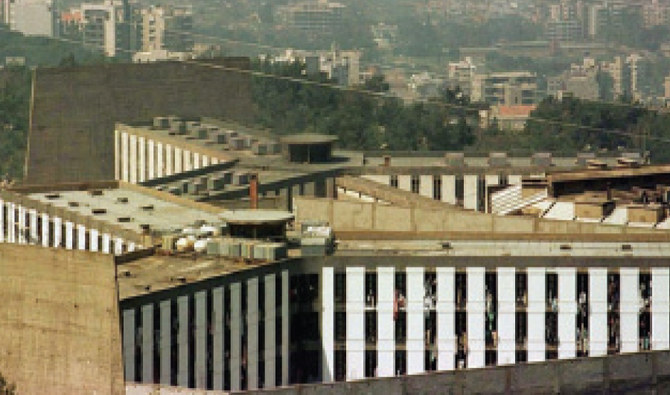BEIRUT: Reports about the spread of the coronavirus disease (COVID-19) in Roumieh Prison, the largest in Lebanon, have caused panic among the families of inmates who fear disaster if quick measures are not taken.
Several guards and inmates are reported to have contracted the virus. Lebanon’s prisons already suffer from severe overcrowding, running at 160 percent of capacity at the end of 2019.
Roumieh, located east of Beirut, houses more than 5,500 prisoners and has a separate juvenile section.
The prison was opened in 1970 with a capacity of about 1,500 prisoners, but the number has grown over the years, making social distancing impossible. The possibility of granting a general amnesty to all inmates is currently under discussion.
Lawyer Ghida Franjieh said: “The judiciary ordered the release of many detainees since the announcement of the general mobilization to avoid crowding in detention facilities.”
She added that parliamentary intervention would be required to ensure the release of those convicted of minor crimes.
“There are many questions that need answers: Were the infections discovered in the early stages?” she added. “Were the infected people isolated immediately?”
“The increase of overcrowding could lead to a health disaster in Roumieh Prison that may cross prison boundaries if the internal security forces and the judiciary do not take all necessary measures to protect infected prisoners and those in contact with them, especially since many prisoners suffer from weak immunity due to poor living conditions and health.”
Many prisoners have complained of fatigue, high temperatures, coughing, shortness of breath, sore throats, loss of smell, and other symptoms. The prison pharmacy has run out of painkillers and fever remedies, according to reports.
Health Minister Hamad Hassan confirmed that there had been COVID-19 cases in Roumieh, but said infections were chiefly “among the security forces in the prison” and that “a very limited number of infections were reported among the prisoners.
“We are working to secure a hospital in Bekaa and another in Beirut to treat the detainees,” he added.
The General Directorate of the Internal Security Forces stated: “Thirteen prisoners and nine security personnel tested positive for the virus on Sept. 11, and a place for quarantine has been prepared in the central prison, in cooperation with the International Red Cross and the World Health Organization (WHO), and sections have been allocated in government hospitals for necessary treatment.”
Families of many detainees in Roumieh organized a protest in Tripoli, calling for necessary measures for the protection of prisoners and to prevent the spread of the virus among them.
The total number of people infected with COVID-19 in Lebanon has reached 24,000, as the daily number of infections has exceeded 500 since mid-August. The total number of deaths as of Sunday was 239.
Lebanese Foreign Minister Charbel Wehbe has also been infected with the virus. His ministry’s employees were subjected to PCR tests last week, and it was found that three people who had contact with the minister were also infected.
Tripoli MP Faisal Karami expressed his concern over the spread of the virus, with only 26 beds to treat COVID-19 patients in his home city, with people having to wait for six days to take tests.
Karami revealed that the residents of Tripoli and its municipality “do not yet believe in the existence of the virus, and people do not adhere to the preventive measures.”
Meanwhile, a spokesman for the UN Interim Force in Lebanon (UNIFIL), Andrea Tenente, said 90 peacekeepers had contracted the virus.
“Eighty-eight of them belong to the same unit. They have been kept in quarantine and all precautions are being taken to prevent the spread of the virus among the peacekeepers,” he said.
“UNIFIL is taking very strict precautionary measures with all its military and civilian elements inside and outside their centers, by following all approved protocols, including quarantine and isolation, in line with the guidelines of the WHO and the Lebanese government. With regard to our employees, we have reviewed the roles of all.”
He said all UNIFIL activities related to implementing its mandate in accordance with UN Security Council Resolution 1701 remain unaffected.


























